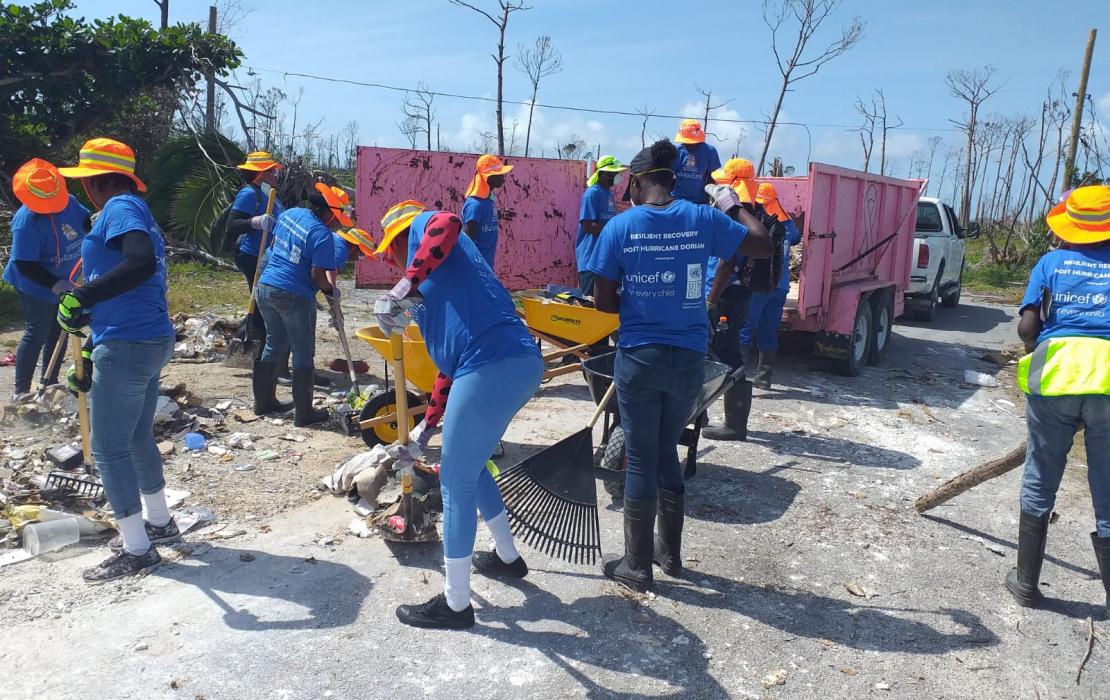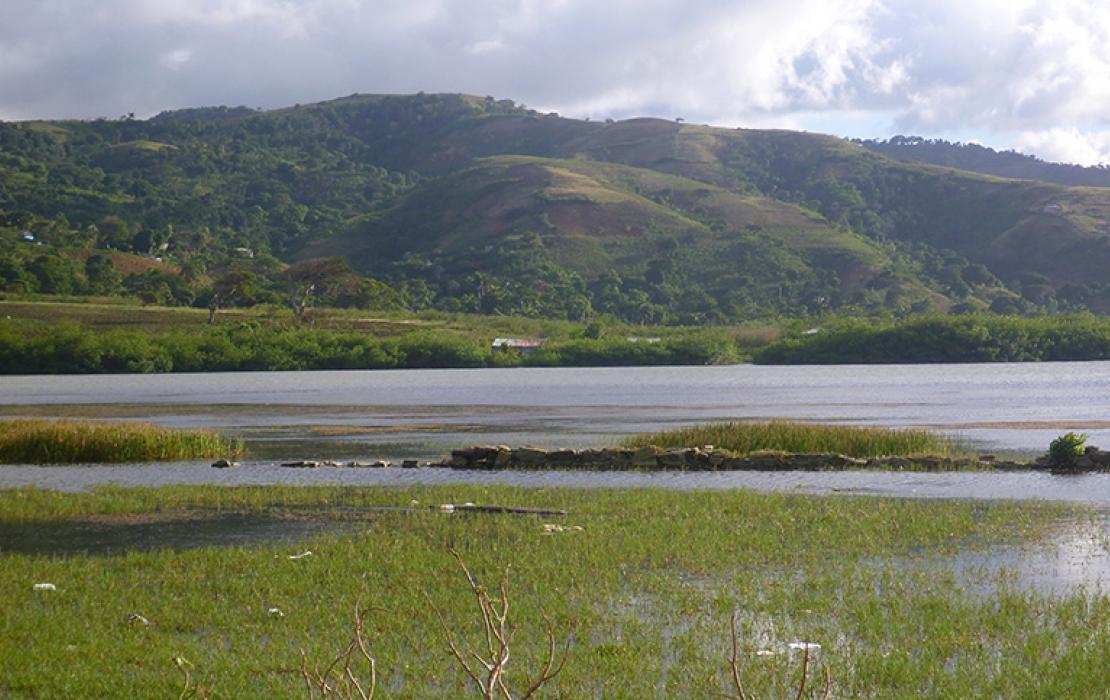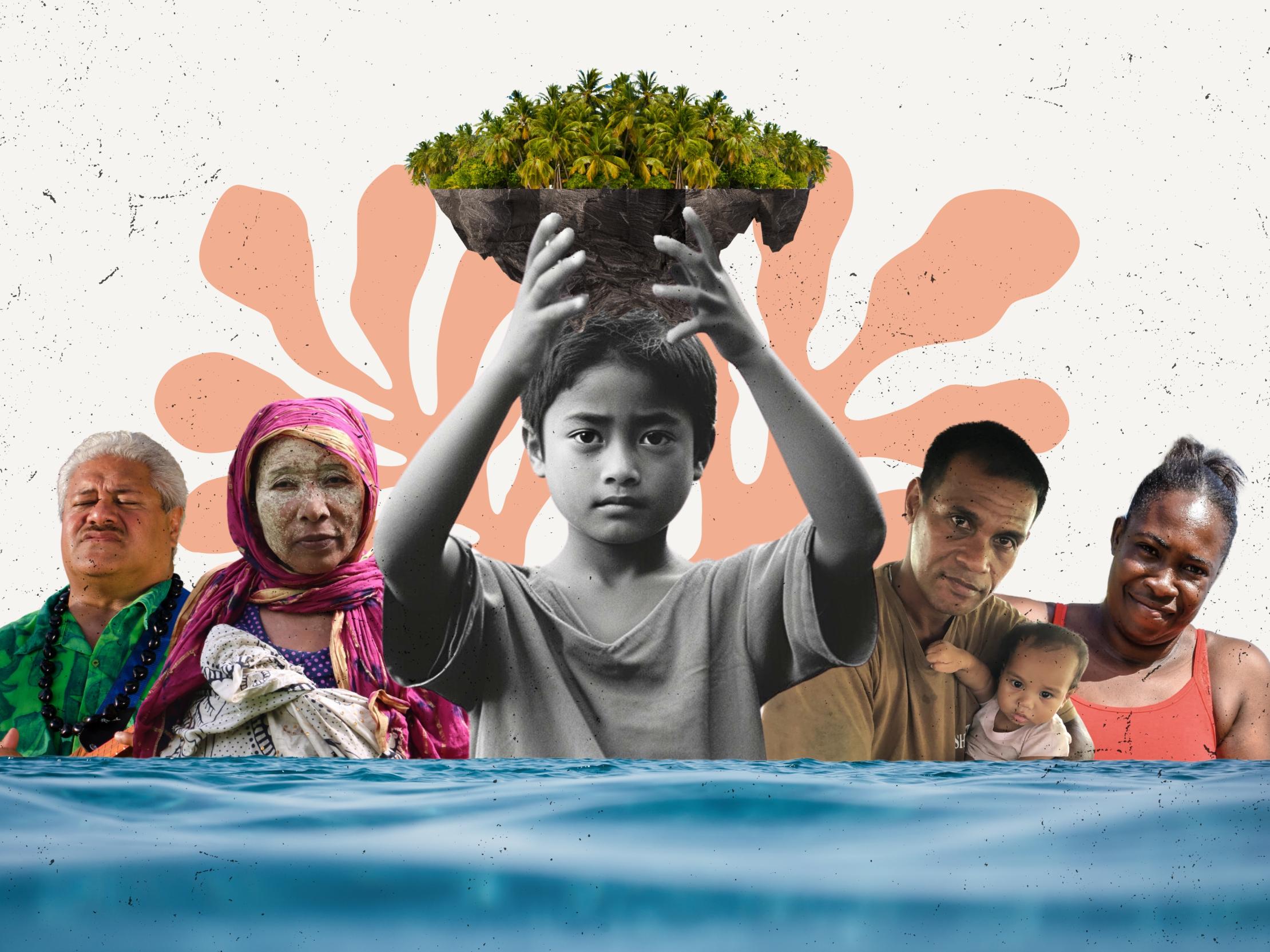
Summary
- Small Island Developing States (SIDS) are a group of small island nations and territories facing similar sustainable development challenges.
- Common traits include remoteness, small populations, dependence on ocean resources, reliance on imports, limited access to finance, and vulnerability to climate change impacts.
- Climate impacts affecting SIDS include more frequent and intense extreme weather events, sea level rise, and ocean warming and acidification.
- SIDS are committing to net-zero carbon and resilient futures through ambitious national climate action plans.
- There is an urgent need to direct financial resources to respond to climate impacts, relieve debt burdens and put into practice crucial climate mitigation and adaptation plans in SIDS.
What are Small Island Developing States?
Small Island Developing States (SIDS) are a group of small island countries and territories that share similar sustainable development challenges and face similar social, economic and environmental vulnerabilities.
Despite their name, not all countries belonging to this group are islands. Belize, Guinea Bissau, Guyana and Suriname are also included because of their common characteristics.
Some of the common characteristics that SIDS share are:
- Remoteness: SIDS are dispersed throughout the world's oceans and seas, with some in remote areas, far away from the nearest landmass. Access to them can be difficult and expensive, with unreliable and infrequent transport.
- Small populations: SIDS generally have very small populations, which limits their options in building diversified economies and taking advantage of scale. The aggregate population of all SIDS, living across more than 1,000 islands, is 65 million people, or less than 1 percent of the world’s population.
- Dependence on ocean resources: Some SIDS also refer to themselves as “large ocean states.” Ocean areas under the control of SIDS are, on average, 28 times larger than their landmass, making ocean and marine resources vital to their economies. Industries like tourism and fisheries can constitute up to half of the GDP of some small island economies, such as Antigua and Barbuda, Seychelles and the Maldives.
- Reliance on imports: SIDS have small land areas meaning that they can’t produce everything they need and rely on imports of food and energy. This leaves them highly vulnerable to external shocks, such as climate change impacts, global financial crises or the COVID-19 pandemic.
- Limited access to finance: While some SIDS, such as Haiti, Comoros and Timor-Leste, fall under the category of Least Developed Countries (LDCs), most are categorized as middle-income countries. This means they don’t qualify for concessional finance to accelerate development objectives, despite their persistent development constraints. Lack of local technical capacity to participate in complex finance processes also creates barriers.
- Debt pressure: Over 40 percent of SIDS are grappling with, or are on the edge of, unsustainable levels of debt, severely constraining their ability to invest in resilience, climate action and sustainable development.
- Vulnerability to climate change: Despite their minimal historical greenhouse gas emissions, SIDS face some of the most severe impacts of climate change, with serious loss and damage in the form of destroyed infrastructure, economic and cultural loss, loss of lives and livelihoods, loss of biodiversity and forced displacement.
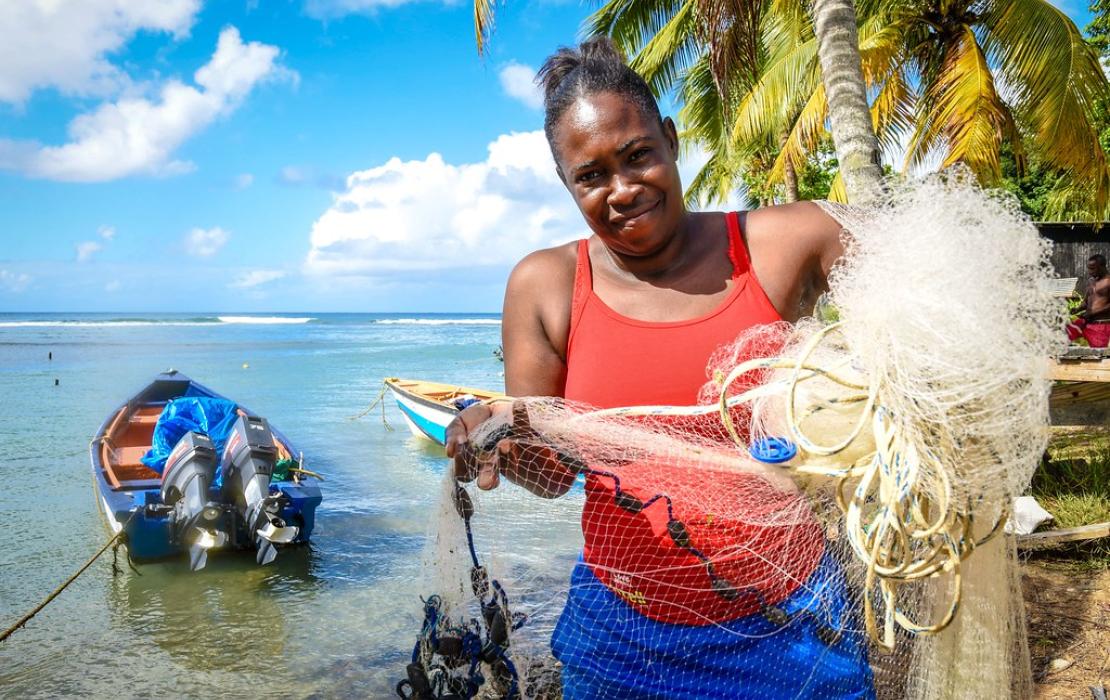
SIDS in the Caribbean are adopting blue economy approaches, promoting jobs and economic growth while preserving and restoring the health of the ocean. Photo: Zaimis Olmos/UNDP Barbados and the Eastern Caribbean
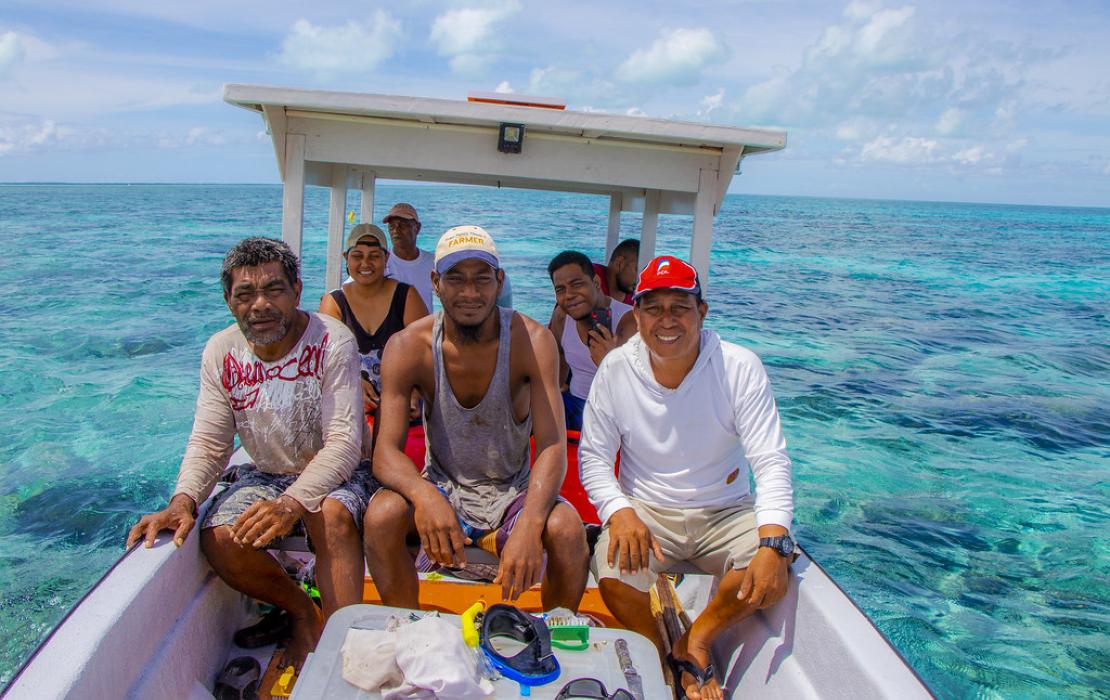
Kiribati is boosting food security through more sustainable management of its coastal fisheries. Photo: UNDP Pacific
How is climate change affecting SIDS?
SIDS are highly exposed to hurricanes and other extreme weather events, which are becoming more frequent and more intense due to climate change impacts, causing significant loss and damage to people, infrastructure and crops. From 1970 to 2020, SIDS lost US$153 billion due to weather extremes, a significant amount relative to the average GDP for SIDS, $13.7 billion. These impacts are increasingly driving displacement, with small island states in the Caribbean and South Pacific being disproportionately affected relative to their population size.
As countries with extensive marine and coastal zones, sea level rise is also a huge threat to SIDS’ populations, economic activities and cultures, with very small islands and atolls seeing their existence challenged. Nearly 22 million people in the Caribbean live less than six metres above sea level and most Pacific islands have over half of their infrastructure within 500 metres from the coast. It is estimated that, by 2050, half of Tuvalu’s capital will be flooded by tidal waters.
High temperatures and ocean acidification threaten marine ecosystems, such as coral reefs, which are not only key to economic activities like fisheries and tourism, but also provide valuable protection to coastlines from storm surges, while also acting as carbon sinks. Moreover, rising temperatures also increase drought risks and freshwater scarcity in SIDS.
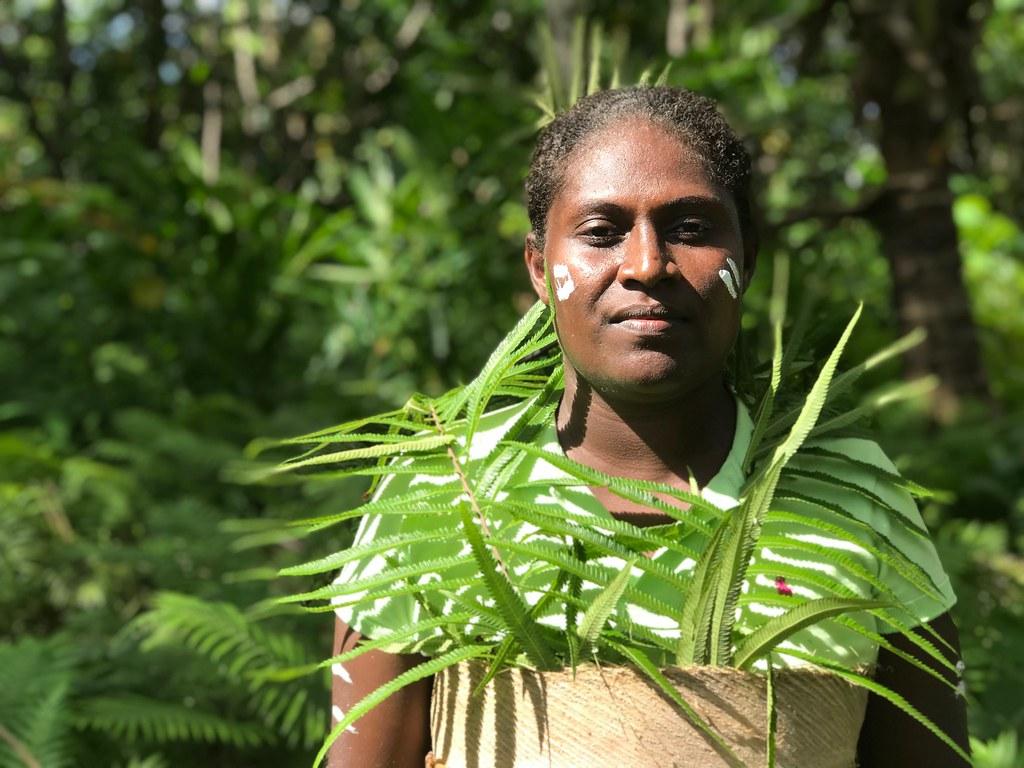
About 80 percent of Solomon Islanders live in rural, low-lying areas and rely on agriculture, forestry and fisheries for food security and livelihoods. Its NDC cites adaptation as a matter of survival. Photo: Patrick Rose/UNDP Solomon islands
How are SIDS contributing to tackling the climate crisis?
Small island states are on the frontlines of the climate crisis, but they are also at the forefront of climate solutions. Many SIDS have made strong political commitments to a net-zero, climate-resilient future, including through ambitious national climate action plans known as Nationally Determined Contributions (NDCs). Although SIDS are low-emitting countries, many view NDCs as a key development opportunity that can support adaptation needs.
Globally, the ocean economy amounts to approximately $3.6 trillion a year and contributes 150 million jobs. SIDS are pioneering blue economy frameworks and nature-based solutions for diversifying their economies, building resilience to shocks and sustaining millions of livelihoods.
SIDS have some of the highest electricity costs in the world, due in part to their dependence on imported fossil fuels. Energy security and just transition remain at the forefront of their NDCs. Despite limited resources and space for renewable energy infrastructure, SIDS aim to reach net zero ahead of 2050 by tapping into solar, wind and geothermal energy sources.
SIDS have also historically played a key role in climate change negotiations, driving important milestones in climate action through various negotiating blocks, such as the Alliance of Small Island States (AOSIS), the G77, and the High Ambition Coalition. Together with the group of LDCs, they have been the driving force behind loss and damage discussions and the establishment of a fund for responding to loss and damage at COP27. They have also been instrumental in keeping the 1.5 °C target in the Paris Agreement, arguing that a 2 °C limit would put their countries at very high risk of impacts.
In 2023, Vanuatu led a global coalition that resulted in the historic UN Resolution requesting the International Court of Justice to hold polluting countries legally accountable for failing to tackle the climate emergency.
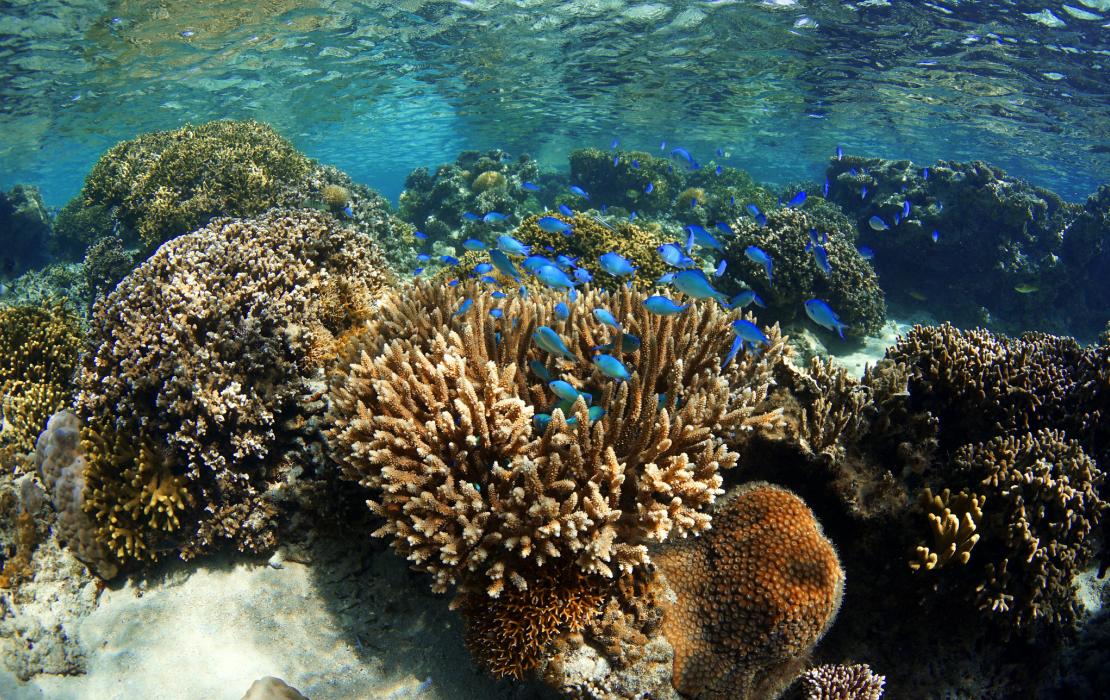
In the Pacific, the Investing in Coral Reefs and the Blue Economy programme will channel finance towards the protection of Fijian coral reefs and communities. Photo: Reef Explorer Fiji
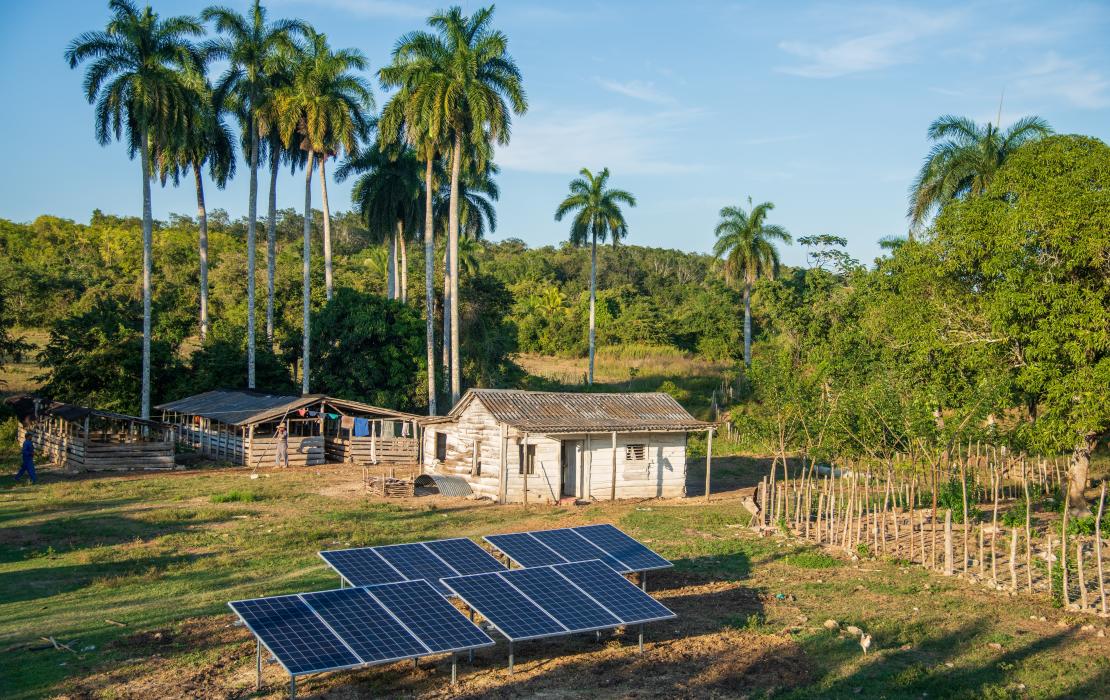
Cuba is working to ensure access to electricity to rural communities using renewable energy systems. Photo: UNDP Cuba
Why does the world need to support SIDS?
Supporting SIDS is a matter of climate justice. Accounting for only 1 percent of global emissions, SIDS hold the least responsibility for the climate crisis, yet suffer some of its worst impacts. While these countries are taking bold measures, the existence, development and wellbeing of their populations is undoubtedly heavily affected by the actions of larger and more industrialized nations.
There is an urgent need to direct resources towards the protection of ocean and marine resources that act as carbon sinks, as they globally absorb 30 percent of atmospheric carbon dioxide and are essential to mitigate climate change. But SIDS will also need resources to urgently adapt and respond to impacts such as sea level rise, even if the world limits average temperature increase to 1.5 °C.
Mounting debt limits SIDS’ already strained resources for climate action, making further discussion on debt relief urgent. These nations have repeatedly said that traditional measures of development insufficiently capture their vulnerabilities. In 2022, Barbados presented the Bridgetown Initiative for the reform of the global financial system, with a set of strong asks to address spiraling debt and growing susceptibility to climate change for low-income countries. Importantly, the initiative seeks to improve liquidity and fiscal space for low-income countries and make the global financial system more shock absorbent.
How is UNDP supporting SIDS?
UNDP is using its strong presence in SIDS regions to support these countries by enhancing climate action, propelling blue economies and catalysing a digital transformation.
More ambitious climate plans
Through the Climate Promise initiative, UNDP is working with SIDS to prepare enhanced NDCs that are ambitious and comprehensive. For example, the Cook Islands is strengthening emissions reduction targets and adding new sectors in its NDC, aiming for net zero emissions between 2030 and 2040. Antigua and Barbuda is embarking on a just transition of its workforce with an energy target of 86 percent renewable energy from local resources by 2030. Vanuatu set a target of 65 percent renewable energy by 2030 and embraced a circular economy. Dominica is focusing on the protection of its forests, ensuring a robust tracking of progress and the inclusion of Indigenous communities.
Participation in negotiation processes
The Progressive Platforms initiative is providing diplomatic and legal advice and hands-on technical support to enhance the capacity of technical and high-level officials to participate in international climate negotiations, with an emphasis on women and young people.
Ambitious energy transformation
To support the crucial energy sector transformation, in Comoros, UNDP’s Africa Minigrids Program will expand electricity access in last-mile settlements across the three islands. CloudSolar, in Barbados, provides a digital platform to de-risk investment in solar energy by allowing anyone to purchase and invest in solar panels.
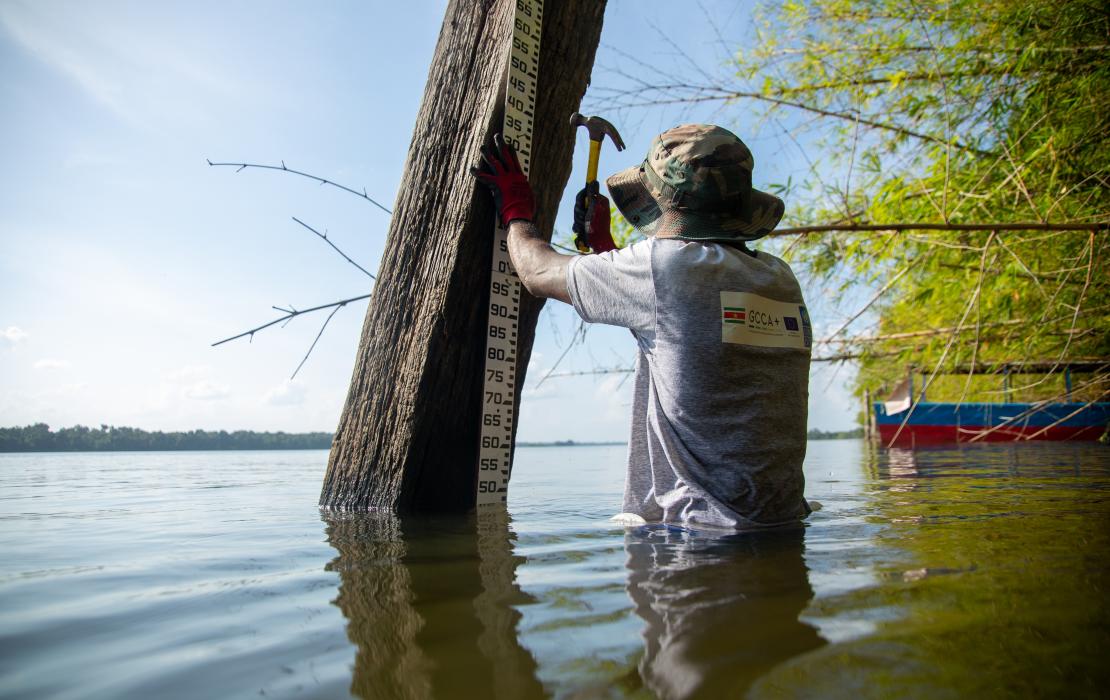
Suriname is embracing nature-based solutions to protect coastal communities and water resources. Photo: UNDP Suriname
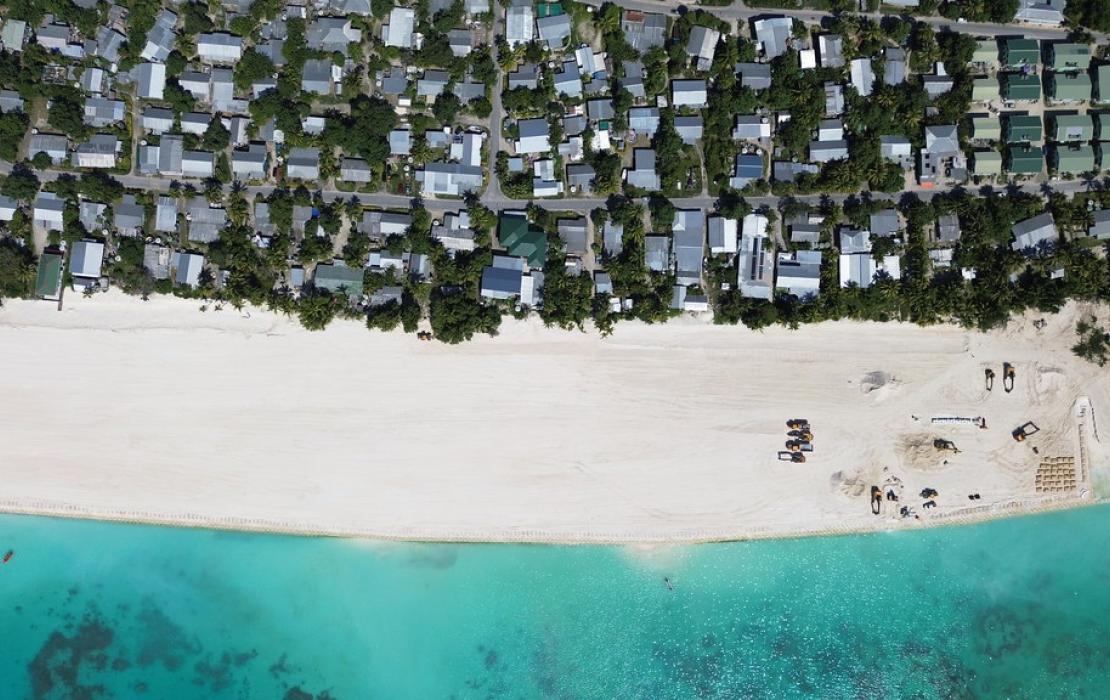
Tuvalu has completed a landmark plan to produce raised land that is safe from sea level rise and storm waves beyond 2100. Photo: TCAP/UNDP
Securing climate finance
One of SIDS’ main priorities is to identify and develop appropriate financing solutions to enhance resilience to future shocks and support climate plans. UNDP’s Pacific Office mobilized $1 million to support early warning systems for water resources in seven countries: Cook Islands, Federated States of Micronesia, Kiribati, Marshall Islands, Nauru, Solomon Islands and Tonga. In the Caribbean, countries like the Bahamas, Belize and Suriname are harnessing the blue economy to achieve their climate action goals, and in the Pacific, a new finance facility will drive finance towards the protection of Fijian coral reefs and communities. Mauritius and Seychelles have developed the first SDG Investor Maps of SIDS countries, providing insights into investment opportunity areas and prospective rates of return.
Improving access to data
To tackle the gaps in data availability, UNDP created the Data Platform for SIDS, a freely available digital tool that provides updated, standardized, and comprehensive information on country figures, geospatial data, and development indicators. The UNDP Regional Ridge to Reef partnership with the Pacific Community also contributes to closing this gap by using spatial data to develop maps of resources, hotspots and habitats.
Adaptation and nature-based solutions
Tapping on its rich biodiversity and ecosystems, SIDS are turning to nature-based solutions, in addition to new infrastructure measures, as means to adapt to climate change impacts. Cuba is restoring ecosystems within mangroves and swamp forests to help protect coasts from saline flooding and erosion, and channel freshwater to coastal areas. Mauritius and Seychelles are restoring degraded coral reefs through community-based coral farming and nursery facilities.
Many countries, such as Cuba, Guinea Bissau, Haiti and Papua New Guinea, are focusing on strengthening and implementing National Adaptation Plans. The Maldives is ensuring access to water through a system that integrates rainwater and desalinated water in a way that is affordable, easier to maintain and is not vulnerable to rainfall variability or sea level rise.
In partnership with UNDP, SIDS are transforming the way they manage ecosystems and natural resources, working to improve food systems, foster sustainable agriculture and fisheries and promote eco-tourism.
Far from sitting and waiting, SIDS are leading the world in ambition, action and advocacy and continue to demonstrate their commitment to climate action. The rest of the world, especially developed countries, need to follow suit.

